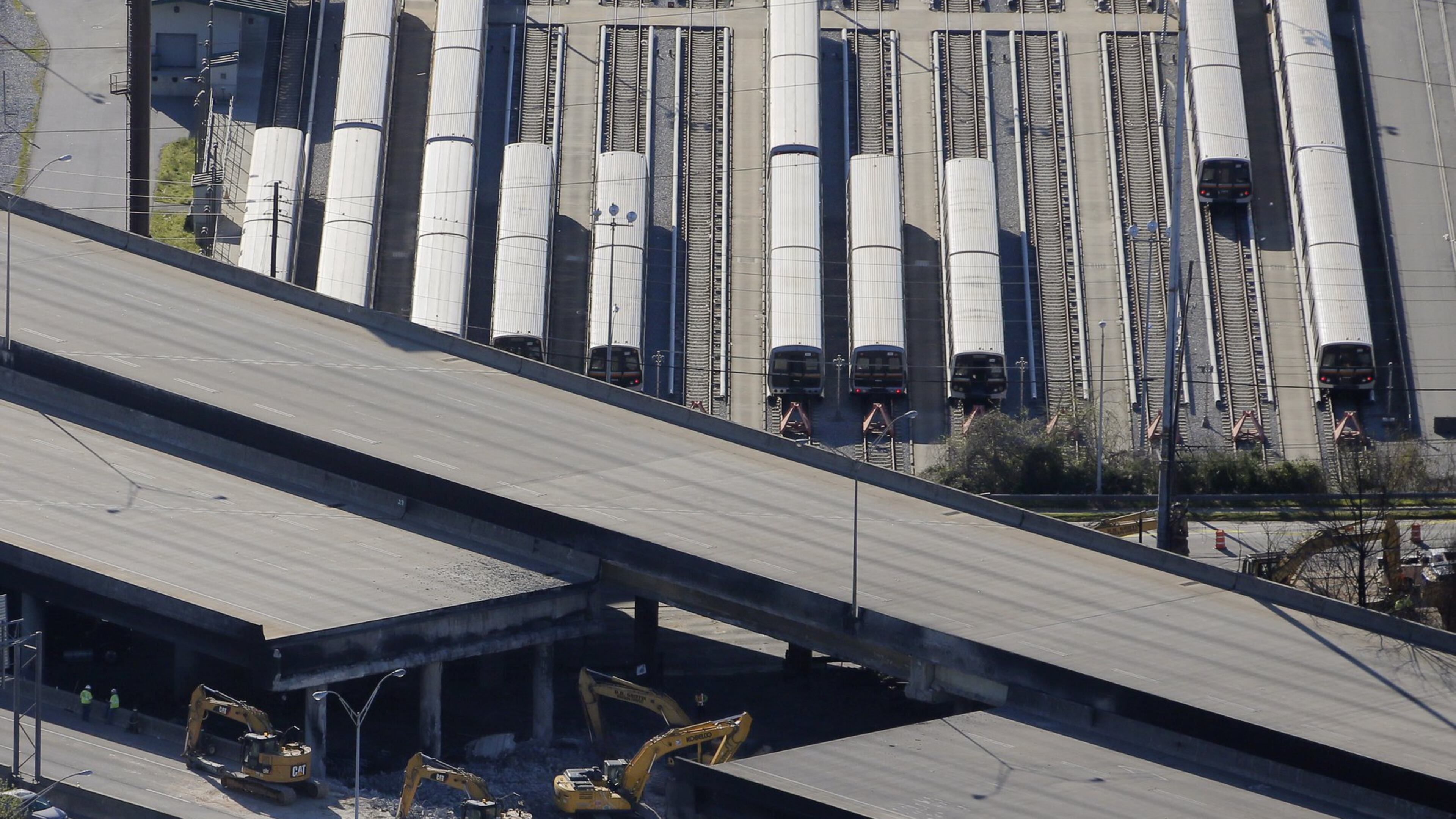How a bridge collapse on Atlanta’s Perimeter would be worse than I-85

The closed segment of I-85 between just south of Ga. 400 is a major headache for Atlanta’s commuters and truckers. But a similar bridge collapse would’ve been more “crippling” to the region and Atlanta’s mighty logistics sector if it had happened on the Perimeter, according to a report this week by CBRE Research.
Metro Atlanta is a logistics hub for the Southeast and the nation, and warehousing has been one of the region’s hottest sectors, fueled in large part by the rise of e-commerce. The region also has a robust manufacturing sector and trucks are a vital way of getting product to market.
Freight traffic traveling through metro Atlanta is supposed to use I-285 as a bypass of the city. Toby Jorgensen, a senior analyst at CBRE Research, said that’s where the overwhelming majority of heavy trucks go.
The state Department of Transportation said it is targeting June 15 to reopen the I-85 bridge.
More vehicles will hit the Perimeter to get around the I-85 closure, Jorgensen said, and that’ll mean longer trip times for commuters and logistics firms alike.
But it could have been worse, he said.
CBRE, citing a study by INRIX, said the Atlanta area has the fourth worst traffic in the country. Then there's the notorious Spaghetti Junction, where I-285 meets I-85 northeast of the city.
The CBRE report said that interchange has been called "the worst trucking bottleneck in the United States" by the American Transportation and Research Institute.
Atlanta also suffers the ignominy of having six other interchanges ranked among the Top 100 worst bottlenecks. Four of those, including Spaghetti Junction, are on the Perimeter.
If an incident jammed up the Perimeter for two months, those trucks would have to go somewhere.
The bigger test for many shippers will be local product delivery, Jorgensen said. UPS, FedEx and the U.S. Postal Service will have to adjust their routes. So will other shippers and service providers.
I-85 is a key route into the city for all sorts of suppliers, and surface streets will see heavier than normal congestion until the bridges at I-85 and Piedmont Road are reopened.
“The hardest part is the last-mile consumer and business delivery,” Jorgensen said.
Some consumers can avoid congestion by taking MARTA or telecommuting. But that’s not an option for businesses that must get product from Point A to Point B.
RELATED: Map: The I-85 bridge collapse, detours and road closures
The shutdown of I-85 will come at a cost to the region.
Last week, Kelly Frey, a vice president of product marketing for tech firm Telogis, told The Atlanta Journal-Constitution the unit cost per mile for shipping through the Atlanta area could go up in some cases by 10 percent to 20 percent.
Telogis, which is owned by Verizon, which provides way-finding technology for commercial truckers that works kind of like the popular smart phone app Waze.
Consumers “won’t feel it immediately at the grocery store,” Frey said. “But somehow that (cost of) congestion will need to be absorbed.”


